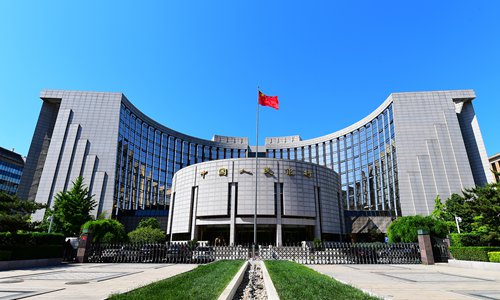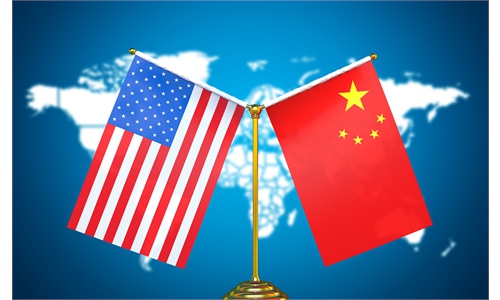China's long-term government bond yields set to match economic growth expectations: central bank

A view of People's Bank of China in Beijing. File photo: VCG
China's long-term government bond yields are expected to match the country's long-term economic growth expectations, an official from the People's Bank of China (PBC), the central bank, said in an interview with the Financial News on Tuesday.
China's long-term government bond yields have continued to decline recently, with the yield on 30-year government bonds slipping under 2.5 percent.
The official from the PBC said that the long-term government bond yields mainly reflect expectations for long-term economic growth and inflation, but they can also be influenced by factors such as supply and demand.
Despite short-term disturbances, the fundamental outlook for China's economy remains positive, and the central bank remains optimistic about China's long-term prospects for economic growth, the official said.
The official noted that China's actual economic growth is expected to remain at a reasonable level for the foreseeable future, and inflation is likely to gradually rise from low levels. This will provide support for long-term bond yields.
China's GDP grew by 5.3 percent in the first quarter of 2024, well above market expectations. The world's second-largest economy has gotten off to a robust start and laid a solid foundation for the economy to achieve the pre-set goal of growing by around 5 percent for the whole year.
The PBC official also said that trading of government bonds in the secondary market can serve as a reserve for liquidity management and a monetary policy tool.
The remarks echoed comments from the Ministry of Finance, which also said that it supports allowing the central bank to buy and sell government bonds to enhance the monetary policy toolbox.
The ministry called for more coordination between fiscal and monetary policy and improvement of the mechanisms for money supply adjustment, in an article published by the People's Daily on Tuesday.
Experts said that the central bank's trading of government bonds would be different from the quantitative easing (QE) used by some developed economies.
Guo Kai, executive president of the CF40 Institute, said that the central bank's trading of government bonds is a routine operation, not a push for a Chinese version of QE.
QE is a form of monetary policy used by central banks as a way to quickly increase the domestic money supply in order to spur economic growth. Historically, the US Federal Reserve has used QE when it has already lowered interest rates to near zero and additional monetary stimulus is needed.
"China's fiscal policy has not changed. The government has set a budget for annual spending, revenue, and debt. The central bank buying government bonds is a normal practice, and the liquidity in the market stays the same," Guo said.
Furthermore, increasing the base money supply through large-scale QE would have a significant impact on the yuan exchange rate, which is not in line with China's goal of keeping the basic stability of the exchange rate at a reasonable and balanced level, Guo said.
Global Times

